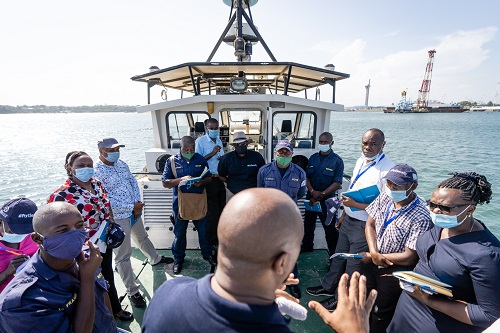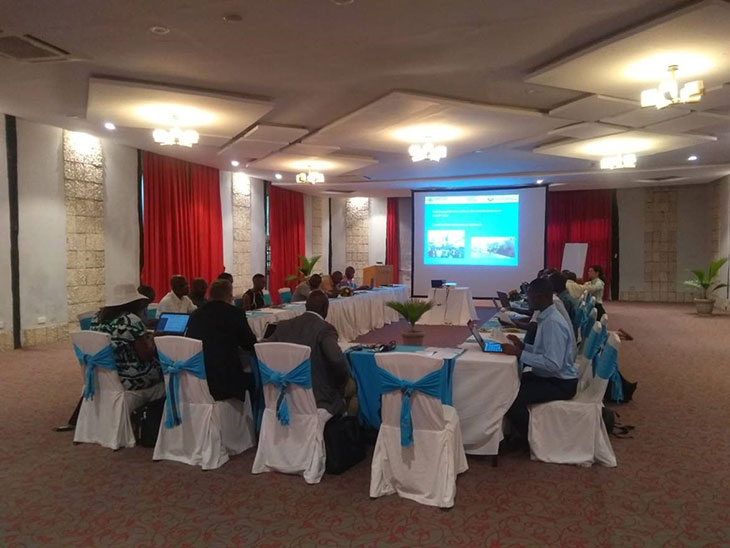Container Control Programme
You are here : Home / What We Do / CCP
The Container Control Programme (CCP) was developed by UNODC and the World Customs Organization (WCO). The programme assists governments to establish effective controls over the flow of sea containers and air cargo traded through their ports, dry-ports, airports and border crossings.
CCP works with governments to build capacity to improve risk management, supply chain security and trade facilitation in seaports, airports and land border crossings in order to prevent the cross-border movement of illicit goods.
Across the globe, containerized cargo and air cargo volumes grow each year. This presents opportunities not only for governments and legitimate businesses, but also for terrorists and transnational organized crime groups to transport anything.
Ranging from legal goods used for money laundering, to prohibited drugs, wildlife products and even materials for weapons of mass destruction. These actors benefit from the sheer volume of global trade because this makes effective monitoring extremely difficult; less than two percent of shipping containers are ever screened. Moreover, the rise of Darknet technologies has enabled any individual to access crypto-markets which exploit standard postal and commercial shipping services. Finally, the challenge is made even greater by the rapid increase in sophisticated concealment measures, corruption, limited resources, complex and diverse port processes and systems. There is also a lack of trust and coordination between state agencies and actors in the private sector.
To ensure effective control over the flow of containers at sea, land, and airports, we work with national customs agencies and law enforcement to:
- Develop the resources and professional skills of the existing border control agencies and enabling them to better identify risky cargo amongst the licit trade;
- Support advanced specialized training workshops, including in Strategic Trade and Export Control (STEC), to target specific areas of illicit trade.
At present, we are operational in over 50 Member States. More than 85 Port Control Units (PCUs) and Air Cargo Control Units (ACCUs) have been established since inception in 2004. These inter-agency units are equipped to exchange information with their counterparts in other countries using a secure communication application, developed by the WCO, called ContainerComm. This provides PCUs and ACCUs access to a wealth of information, allowing users to track, profile and identify high risk containers, verify their identification numbers and send out alerts to other PCUs and ACCUs.
Our Work in Eastern Africa
We are active at Kilindini Port and the Jomo Kenyatta International Airport in Kenya, and in Tanzania’s Port of Dar-es-Salaam. We also have presence in Uganda’s Inland Container Deport located in Kampala and in the Entebbe International Airport. We are currently expanding to strengthening border posts located in East Africa.

